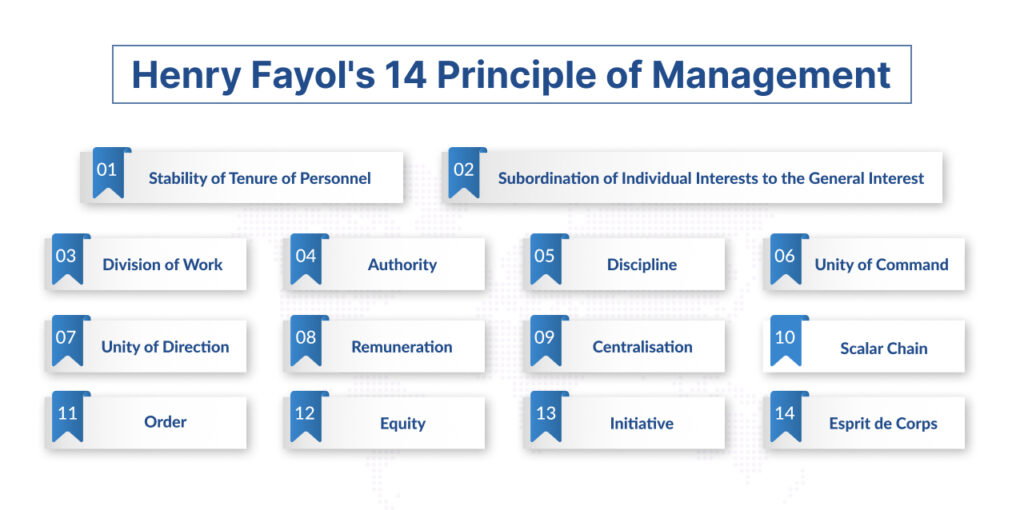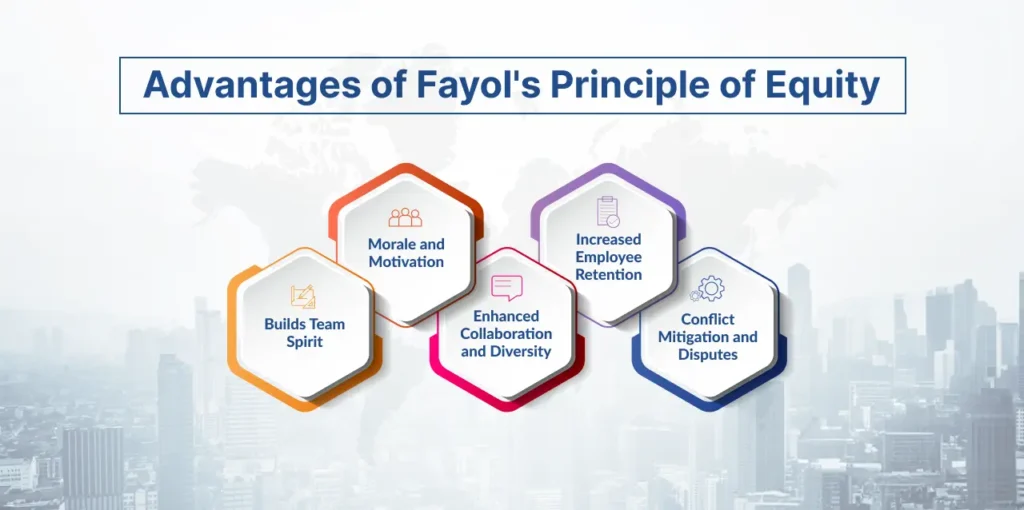Equity Principle of Management: Importance, Advantages and More
Employees, valuable assets of any organisation, are the driving force behind the Equity Principle of Management (EPM). This principle, pioneered by the father of management, Henry Fayol, advocates for a work environment free from inequity and biases, placing the utmost importance on every individual’s unique contribution.
In this article, we will learn about the scope, advantages, and more about EPM to understand its core aspects.
What is the Equity Principle of Management?
In Management, the principle of equity states that all employees should be treated equally and fairly. Henry Fayol believed that within the organisation, all employees should be given equal emphasis in terms of gender, caste, colour, position, religion, etc.
The fundamental principles of equity include the following:
- Fairness- Ensures that no one should fall behind or be favoured in one group of circles.
- Transparency- Information should be accessible to all the stakeholders.
- Inclusiveness- Presenting the decision-making process to diverse groups.
- Accountability- Holding the responsibility of the group and individuals for their actions.
Before discussing Equity further, let’s discuss the other equally important principles.
Henry Fayol's 14 Principles of Management

In an organisation, the management principle helps the managers to get the best from employees and run a smooth culture within the industry. Here are the detailed principles to follow:
|
Principle of Management |
Descriptions |
|
Division of Work |
|
|
Authority |
|
|
Discipline |
|
|
Unity of Command |
|
|
Unity of Direction |
|
|
Subordination of Individual Interests to the General Interest |
|
|
Remuneration |
|
|
Centralisation |
|
|
Scalar Chain |
|
|
Order |
|
|
Equity |
|
|
Stability of Tenure of Personnel |
|
|
Initiative |
|
|
Esprit de Corps |
|
What is the Importance of the Equity Principle of Management?
In the work culture, everyone craves fairness and equality, and the principle of equity champions these values. It fosters a positive organisational environment, promoting transparency and employee well-being. A healthy work environment enhances productivity and employee satisfaction, ensuring a harmonious work atmosphere where all decisions are driven by equality.
Let’s learn the features of the principle of equity:
- Strong Trust– To have a healthy workplace, one must be transparent with stakeholders and promote fairness and equity.
- Enhanced Decision-Making– A diverse perspective is needed to make profound and insightful decisions that benefit the company.
- Risk Reduction– Limiting the risk of legal issues will adhere to equitable practices.
- High Productivity– Ensures all employees are highly motivated to provide their best work, emphasising increased productivity.
Advantages of Fayol’s Principle of Equity

The principle of equity in management promotes fairness and justice within the company, significantly changing the work environment. Here are the compelling advantages of the principle of equity to consider:
- Builds Team Spirit– If the company is friendly, healthy, nonjudgmental, and empowers you to grow, team spirit usually builds up with its positive surroundings. It becomes easy for the teammates to achieve the organisational goals that bring stability and successful growth.
- Enhanced Collaboration and Diversity– The equity principle of management brings various perspectives from different employees where ideas are valued and voices are heard. When an organisation understands your point of view, it leads to innovation, collaboration, and problem-solving
- Increased Employee Retention– Employees who feel appreciated and are treated fairly are less likely to seek employment elsewhere. When an organisation builds equity, it increases their desire to stay loyal to the company.
- Morale and Motivation– A defined equity principle of management creates a fair workplace, boosts employees’ morale, enhances work motivation, and creates a healthy and friendly environment.
- Conflict Mitigation and Disputes– Justice in the decision-making process limits organisational conflicts and disputes. Employees are mature enough to avoid negative behaviours like favouritism, discrimination, or resentment to create a team spirit organisation.
Conclusion
The equity principle of management fosters a healthy environment within the organisation through a strategic approach which implements a productive and thriving work culture. The organisation’s goal is to maintain an equal standard of team building, which leads to outstanding achievement by building a solid foundation and guaranteeing fairness, justice, and respect to all employees.
Equity Principle of Management: FAQs
Q1. What is the Principle of Equity?
Equity is defined as fairness to all employees regarding respect, work opportunities, etc., to establish teamwork within the company.
Q2. Why is the Principle of Equity important?
A workplace requires EPM to ensure equal opportunities for all employees. This principle provides the same chance of applying for a position, participating in team projects, and accessing professional development within the company’s surroundings.
Q3. How is the Equity Principle of Management implemented in an organisation?
In an organisation, EPM is implemented by defining objectives, enhancing stakeholder engagement, developing policies, and allocating resources to monitor effectiveness.
Q4. Can equity impact an employer's performance?
Indeed, when an employee is treated fairly and respectfully, the performance is impacted hugely.
Q5. How can managers exercise equity?
Managers had to be fair to all employees, reflecting teamwork and enhanced organisational productivity.
Our Programs
Recent Blogs



- Amity University Online MBA
- Shoolini University Online MBA
- Sharda University Online MBA
- Uttaranchal University Online MBA
- Symbiosis Online MBA
- Jain University Online MBA
- Manipal Online MBA
- OP Jindal University Online MBA
- LPU Online MBA
- NMIMS Online MBA
- DY Patil Online MBA
- UPES University Online MBA
- IIM Kozhikode Online MBA
- MICA
Online MBA Specialisations
- Amity Online MCA
Online MCA Specializations
Copyright ©2025 All Rights Reserved by Hike Education Pvt. Ltd.











.png)

.png)




